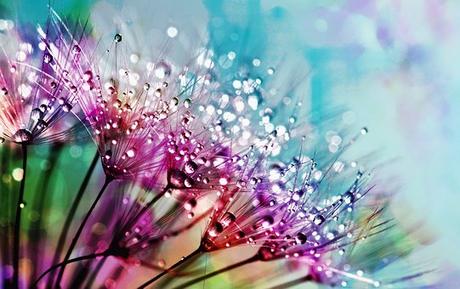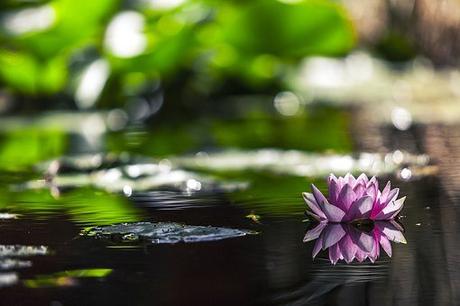6 Floral Waters to Take Care of Your Skin
The floral waters captivate with their light texture and mild fragrance, but also contain small amounts of essential oil that care for the skin without irritating it. Discover its properties and how to use them.
The floral waters are one of the most valuable gifts of nature and are ideal to start in the exciting world of aromatherapy. Its therapeutic benefits result from the number of active principles they have: among them, essential oils (5%) and other volatile water-soluble compounds.

Although they are called floral, these waters do not always come from the flower; sometimes they are produced from leaves, stems, or other parts of the plant. They are obtained through the same steam distillation process that is used to obtain essential oils. This method consists of passing steam through the chopped plant.
Subsequently, the gas condenses and becomes a liquid separated into two phases: the supernatant is the essential oil, while the liquid that remains in the lower part, more abundant, is the hydrolase floral water. Although the two phases separate afterward, a small percentage of essential oil always remains in the floral water.
During this process, some toxic substances may also dissolve. Opting for organic floral waters helps to avoid them.
How to make Floral Scent At Home👈👈
MORE EFFECTIVE FLOWER WATERS

The rose, a great tonic
The rosewater is probably the most popular. It is obtained by distilling the petals of different types of roses. Throughout history, it has been attributed to antidepressant and even aphrodisiac properties. What has been proven is its astringent capacity, making it ideal for closing pores after cleansing. It is indicated above all in oily skin.
Sleeping lavender
Another classic with very varied uses. It is used as an antiseptic on the skin in small wounds or after shaving. Due to its mild calming effect, it is also recommended for restless babies or those with difficulty sleeping: add a few drops to the night bath or spray it in the room.
The relaxing orange blossom
It has relaxing properties and helps eliminate gas. Diluting a few drops in a glass of water can be used to increase blood pressure. To this end, it was widely used in the past after a blackout.
Witch hazel for circulation
The floral hamamelis water improves blood circulation. It is used in upward massages on the legs in order to improve heaviness and varicose veins.
Spray on the face, it balances sebaceous secretion, tightens pores, and reduces redness caused by couperose, rosacea, and even sunburn. You can wet a cotton pad with it and leave it to act on closed eyes for 10 to 15 minutes to reduce dark circles and rest your eyesight.
Decongestant chamomile
It contains, together with a small amount of essential oil, two active principles - azulene and bisabolol - that give it soothing and decongestant properties. Cotton pads are moistened and, as with witch hazel, placed over closed eyes to relieve eye fatigue. In addition, due to its sedative and antispasmodic effect, it is ideal to apply to the baby's skin with a gentle massage on the abdomen in order to facilitate digestion, avoid colic and promote night rest.
Astringent geranium
The water obtained from this flower, by closing the pores, can be used after cleansing the skin. It is also a skin regenerator and removes excess oil from the skin, giving it great luminosity.
ORIGINALLY WRITTEN BY - FITNESS YODHA

